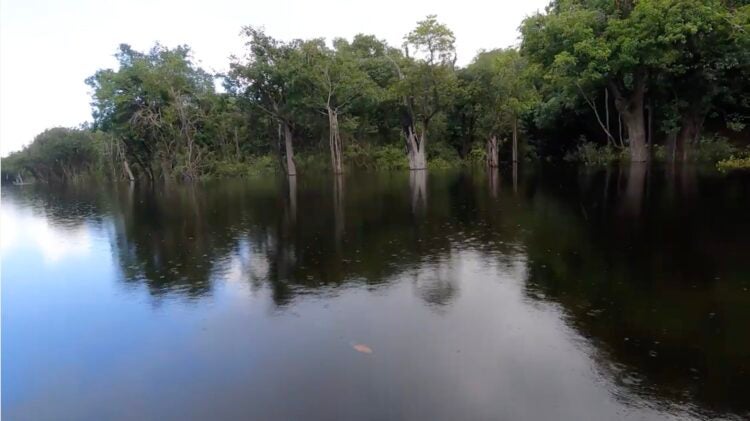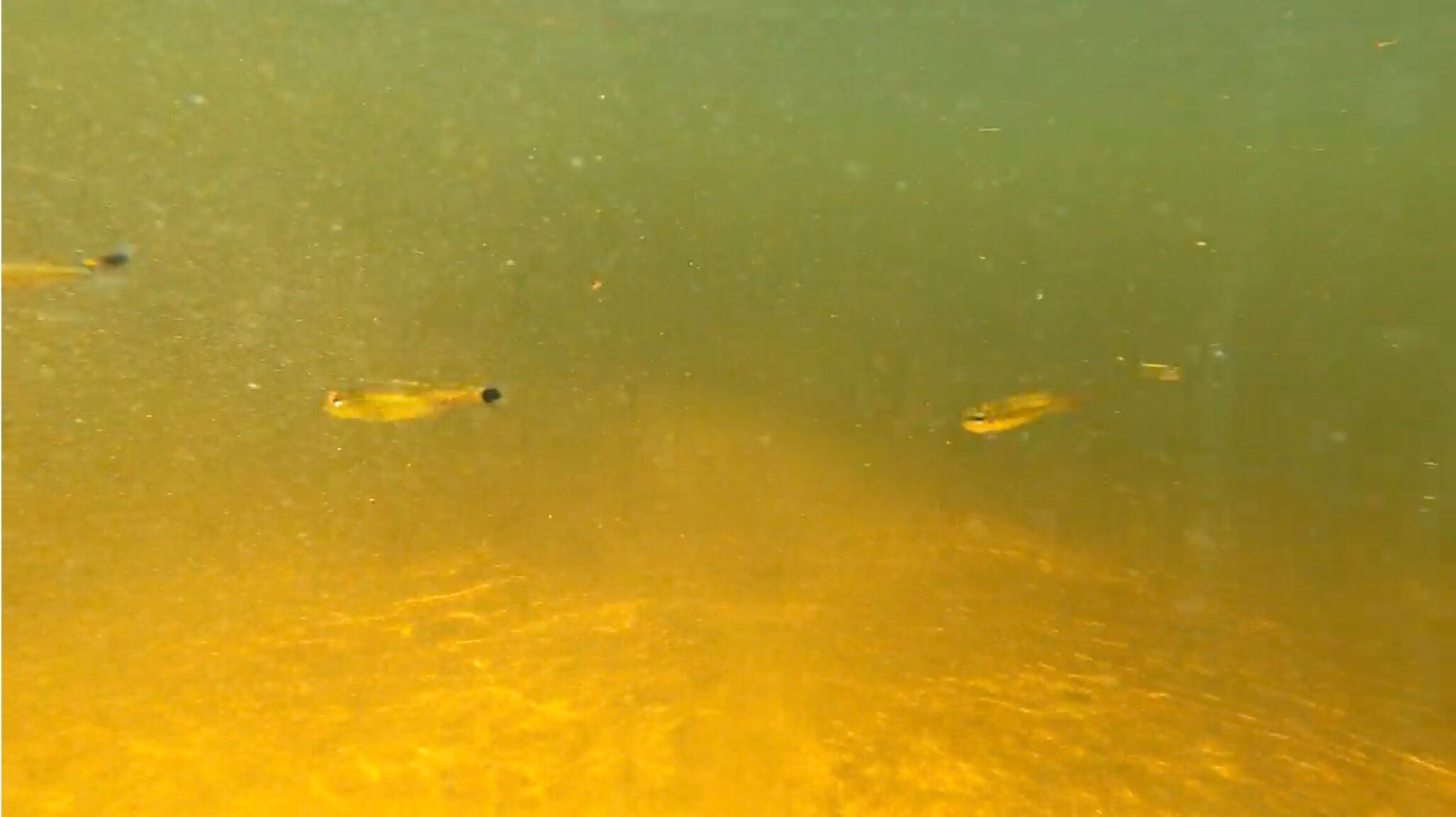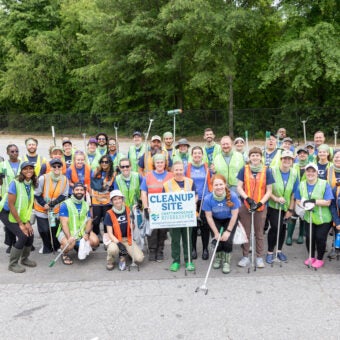

Story
Buy a Fish, Save a Tree: Georgia Aquarium Explores the Amazon Basin in Support of Sustainable Tetra Fisheries
Two members of our Fish and Invertebrates team — Nathan Farnau and Zelie Wooten — recently traveled deep into South America’s Amazon Basin, along the Rio Negro, to participate in a decades-long conservation initiative known as Project Piaba, supporting sustainable fisheries in the area.
This groundbreaking project, started over 30 years ago, focuses on the tiny but mighty tetra — a popular freshwater fish beloved by home aquarists worldwide. Since the 1950s and ’60s, demand for these shimmering swimmers has supported a sustainable livelihood for local fishers. In a rare twist in global aquaculture, this fish trade has become a surprising ally in rainforest protection.
Instead of turning to agriculture or logging to survive, communities along the Rio Negro have created a niche economy centered around catching wild tetras. Not only does this reduce pressure on the rainforest, but it actively incentivizes its preservation. One of Project Piaba’s core messages states: “Buy a fish, save a tree.”
A Living Lab in the Amazon
Nathan and Zelie spent two weeks aboard a liveaboard research vessel, navigating the winding waterways and immersing themselves in the region’s diverse ecosystems. From canoeing through narrow tributaries to snorkeling in murky waters, they encountered the remarkable wildlife of the Amazon—pink river dolphins, rays, caiman, vibrant bird species, and, of course, an abundance of freshwater fish.
During their travels, they had the chance to visit fishing communities and witness firsthand the importance of sustainable fish harvesting practices. The trip aligned perfectly with the annual Fish Festival, where local traditions shine through songs, dances, and dress inspired by native fish species. It’s a vivid reminder of how deeply intertwined the people and the river truly are.
Innovation That Sustains
By working with local fishers and exporters, they’re helping implement more sustainable practices in transport, handling, and fish care. One such initiative is a 30-day conditioning period for tetras. During this time, the fish acclimate to new water conditions, receive immune-boosting nutrients, and are carefully monitored to optimize their health throughout transport.
Another exciting advancement is the introduction of a traceability study. Each container of fish is tagged with a unique barcode and scanned at every step in the supply chain — from the moment it leaves the river to when it reaches a retailer. This transparency not only ensures higher fish welfare standards but also adds value for consumers who can now learn the story behind each fish they purchase.
A Fragile Future, A Powerful Message
Despite Project Piaba’s long-running success, the region faces new challenges. Prolonged droughts and the influx of commercially farmed tetras from Southeast Asia have threatened the environment and the livelihoods of the communities that depend on this delicate ecosystem. Supporting sustainable wild-caught fish might be the key to ensuring rainforest preservation remains a viable economic model.
Looking ahead, Georgia Aquarium is excited to support a major PR initiative this September, designed to raise awareness about the project and encourage consumers to buy from these eco-conscious sources.
Rethinking Conservation
This trip served as a powerful reminder that conservation isn’t one-size-fits-all. In this case, responsible extraction, when done with care and community, helps both people and nature thrive.
In a world where aquaculture often gets a bad reputation, this is an inspiring exception. This fishery is not only sustainable, it’s essential to livelihoods, biodiversity, and the rainforest itself.
So next time you’re looking to add a new member to your home aquarium, remember:
Buy a fish, save a tree.
Georgia Aquarium is one of the largest aquariums in the world with more than 11 million gallons of water and tens of thousands of animals. Located in Atlanta, Ga., it is a premier animal care and research facility that is accredited by the Association of Zoos and Aquarium, the Alliance of Marine Mammal Parks and Attractions, Humane Certified by American Humane, and a Class R research institution certified by the USDA. By providing guests with unparalleled opportunities to learn about marine life, Georgia Aquarium is dedicated to unlocking the ocean’s wonder for all, providing transformative experiences that inspire a shared responsibility for conserving our aquatic ecosystems.









